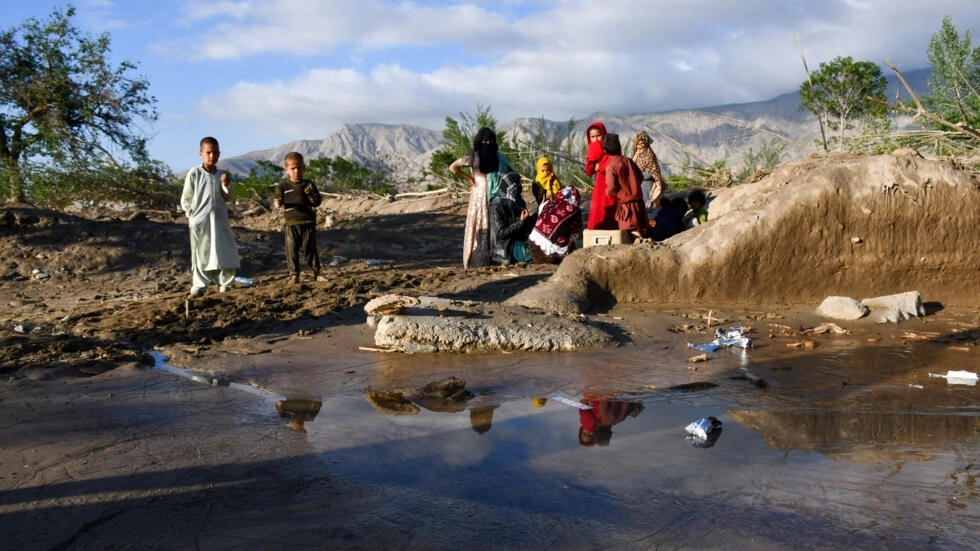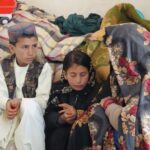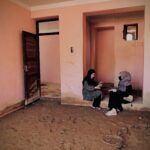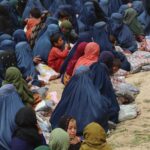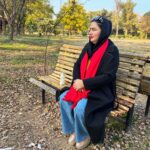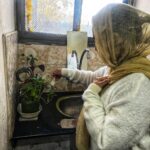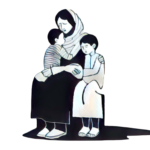Women in the flooded provinces do not feel they can talk about periods and sanitary products.
Women affected by flash floods in Afghanistan are struggling to access sanitary products. Some feel uncomfortable talking about periods with aid providers.
Multiple provinces in Afghanistan declare a state of emergency as flash floods kill over 300 and leave many injured, according to the UN’s World Food Programme.
Now women in the areas are finding that NGO aid does not always contain sanitary products.
Frishta, 49, from the Nahrin district of Baghlan province, said that some women need sanitary products during their period but they cannot talk about it and ask for sanitary pads.
After their home was flooded, the family’s equipment was destroyed. Relief organizations provided them with food and tents. “We had to move to a tent with our family,” she told The Afghan Times.
She said she and her relatives rushed to the tents in Baghlan at night, along with other families from flood-hit areas.
“During the night, without any facilities in the tents, we slept under the open sky,” Said Frishta. The next morning, the provincial administration and numerous volunteers and welfare organizations provided us with food and other essentials.
Frishta said she had met a woman in distress, who had started her period and had no sanitary products.
She said she spoke to other menstruating women in the neighborhood and encouraged them to tell the issue to authorities. She added many were afraid to speak up and they felt they could not talk about the issue.
Frishta said that it was difficult for women to use pieces of clothing as pads, especially when they were covered in dust.
“At that time, I reached out to the doctors who were in the village medical camp for those affected by the floods and informed them about the women having a menstruation cycle. The doctors said they had no sanitary products,” Frishta said.
She said that she kept it a secret from male family members. If they found out that I discussed menstruation with doctors, it could put her in danger.
“After searching around and around, I was not able to find a single sanitary pad for women – while every woman needs it urgent,” said Frishta.
Volunteers say that people are hesitant to discuss menstruation due to cultural taboos.
We spoke to a volunteer named Shoaib who works for an aid organization in Baghlan province. We asked him why they weren’t providing sanitary products to the women they were helping. Shoaib explained that he wanted to start by providing them to his own family first. When he told his mother about his plan to deliver sanitary pads to women affected by floods in Baghlan province, “she got angry and said it is shameful.” Shoaib shared this story while he was delivering food to families affected by the floods.
“Talking about periods and menstrual health is still considered a taboo in the region,” Shoaib said. “People don’t talk about this problem,” he added. Despite their efforts to raise awareness about hygiene kits, he and his team have faced difficulties while discussing sanitary products with the community.
Shoaib’s team attempted to distribute sanitary pads to women through a team of female volunteers. “The women were hesitant to take the sanitary products from our female volunteer team. They tried to convince them as much as they could.” He said one volunteer even reported facing difficulties while distributing the products among the women.
“It’s important to accept that menstruation is a normal part of women’s lives and to have open conversations about it,” said Shoaib.
*The female reporters of the Afghan Times Parven and Shabana interview women affected by floods in Baghlan province as the sole female reporters in the region.
*The names of the interviewees and writers have been changed to protect their identities.


